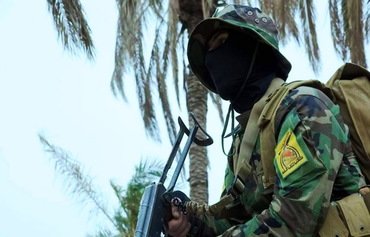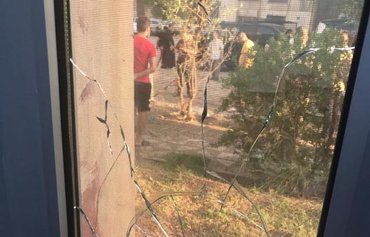The US declared Ahmed al-Hamidawi of Kataib Hizbullah in Iraq a terrorist last week, in an effort to step up pressure on Iran's proxies.
The State Department listed al-Hamidawi, who serves as secretary-general of the militia and is also known as Abu Hussein and Ahmed Muhsin Faraj, as a "specially designated global terrorist", freezing any US assets he may hold and making US transactions with him a crime.
Kataib Hizbullah, which has a close relationship with Iran, has been designated a terrorist group by the US since 2009.
"Today, we are intensifying our pressure on this terrorist group," said Nathan Sales, the State Department counter-terrorism chief, at a news conference on February 26th.
He charged that the group's goal is to "advance the Iranian regime goal of turning Iraq into a vassal state".
Kataib Hizbullah has claimed responsibility for numerous attacks against US and coalition forces in Iraq, including IED attacks, rocket-propelled grenade attacks, and sniper operations.
Most recently, on December 27th, the militia launched a rocket attack against an Iraqi military base near Kirkuk, killing a US civilian contractor.
The incident sent tensions soaring, with the US bombing paramilitary targets and eventually killing Iran's most powerful general, Qassem Soleimani, in a drone attack at the Baghdad airport.
The State Department also pointed to indications that the group was behind deadly sniper attacks against demonstrators in October in Baghdad.
Undermine Kataib Hizbullah
The sanctions against al-Hamidawi are part of US efforts to undermine Kataib Hizbullah, which is known for its deep loyalty to Iran, said Iraqi journalist Ziyad al-Sinjari.
The militia is an armed faction that retains economic interests, weapons and dangerous influence, and it uses those resources to serve the Iranian agenda aimed at spreading sectarianism, violence and chaos, al-Sinjari told Diyaruna.
Al-Hamidawi is close to Iran's Islamic Revolutionary Guards Corps Quds Force (IRGC-QF) and previously followed the orders of Qassem Soleimani, he said.
Currently he is working under the new commander, Esmail Qaani, he added.
Al-Hamidawi is behind planning and leading various attacks that aimed to hurt Iraq's security, plunder its resources and threaten the region's security.
He did that in collaboration with other militia leaders, including former Kataib Hizbullah leader Abu Mahdi al-Muhandis, who was assassinated alongside Soleimani on January 3rd, al-Sinjari said.
"Sanctions obstruct the terrorist plots of such groups and pave the way for more preventive measures aimed at limiting these Iranian agents' ability to perpetuate Iran's hegemony over Iraq and neighbouring countries and harm regional stability," he said.
Kataib Hizbullah was established in 2007 and has about 7,000 fighters, according to unofficial reports. The group's operations extend to Syria.
Political gridlock
The designation of al-Hamidawi comes amid political gridlock in Iraq and ongoing protests demanding the ouster of the entire political elite, which they accuse of being inept, corrupt and beholden to Iran.
On Sunday (March 1st), prime minister-designate Mohammed Allawi stepped down, after he failed to form a government, AFP reported.
President Barham Saleh now has 15 days to propose a new candidate -- likely intelligence chief Mustafa al-Kazimi, according to political sources.
Meanwhile, two more rockets were fired overnight into Baghdad's Green Zone, where the US embassy and American troops are based, in the 20th attack against US assets in Iraq in four months.
None of the multiple attacks since October targeting either the Baghdad embassy or the roughly 5,200 US troops stationed across Iraq has been claimed.
But the US has pointed the finger at Iran-backed groups within the Popular Mobilisation Forces.

![Iraqi Kataib Hizbullah elements during a gathering in Baghdad on June 8th, 2018. [Photo circulated online]](/cnmi_di/images/2020/03/02/22762-Iraq-Hezbullah-Brigades-600_384.jpg)






